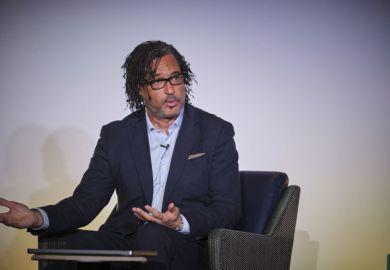It has been well known for some time that Cardiff University’s financial situation leaves it with no option but to reduce the size of its teaching operation. But while a raft of tough decisions was expected, the university’s precise proposals, announced last week, have rightly provoked widespread concern.
That concern has primarily focused on what the threatened closure of the departments of music and nursing will mean not just for Wales but for the UK as a whole. Equally troubling, however, are Cardiff’s proposals regarding the teaching of languages and cultures.
The university is proposing to streamline its provision of humanities disciplines by setting up a new School of Global Humanities. Financially, this is sensible because it will ensure economies of scale. It also has intellectual merit because it will foreground the interdisciplinary connections between subject areas that have previously seen themselves as discrete.
Furthermore, it is imperative that all subjects consider the global relevance and purpose of their research and teaching given the range and extent of the problems that humanity is facing, from accelerated climate change to the increasing belligerence of the world’s authoritarian regimes.
However, Cardiff has also embraced the entirely bizarre proposition that the global and transtemporal examination of culture is possible even without the provision of languages at degree level. There are very many reasons why this is alarming.
The study of culture in global perspective requires the development of an understanding of how material realities, everyday practices and modes of social interaction appear and operate differently according to the interpretative systems in which all human beings are necessarily situated. Language is the most important of those systems.
The intellectual and ethical purpose of the integrated study of language and culture is precisely to facilitate greater knowledge of how people make sense of themselves, their communities and their dealings with the wider world. It is also to allow us to see the contingency of our own worldview, its possible underlying inequalities and the importance of genuinely transnational dialogue to its development.
Studying global culture uniquely through the medium of English would demonstrate an indifference to both linguistic and viewpoint diversity. Worse still, it would impose an anglo-normative framework on the cultural realities being examined. When so much recent attention has, rightly, been paid to cultivating inclusive and decolonial approaches to the study of culture, it is astounding that any university would wish to predicate its approach to global humanities on such an imperialist premise.
It should also be evident that the value of a degree in global humanities will be significantly enhanced if it involves the integrated study of high-level language skills and deep cultural knowledge. Every survey tells us that employers in the public and private sector place a high premium on graduates’ proven ability to learn languages, to adapt to the reality of living abroad, and to demonstrate the mental flexibility that accompanies familiarity with diverse social, cultural and linguistic contexts.
In fact, graduates of languages, along with other arts, humanities and social science disciplines, are just as likely to be in employment as their STEM counterparts. And departments across national, regional and local government have made it abundantly clear that the UK needs more graduates in languages and cultures, not fewer.
Linguistic competence can be used to facilitate international trade, transnational cooperation, security and social cohesion. A 2022 RAND/University of Cambridge report reveals, for instance, that removing linguistic barriers to trade could be worth an additional £19 billion annually in UK exports. Any forward-looking university should reflect that in its programmes of study and research.
A further consideration relates to the way universities interact with wider society. Though there are, no doubt, those who would like to impose linguistic homogeneity on the UK, such a desire is clearly at odds with the reality. That is especially true in Wales, where Welsh is integral to every aspect of the country’s functioning.
The evidence shows that the acquisition of one language is supported and enhanced by competence in another, and the Welsh government has also committed to international languages through its 10-year Global Futures strategy for schools in the principality. And it has stood full square behind the MFL mentoring programme that has promoted multilingualism in Wales since 2015.
Cardiff’s proposals would be at odds with such strategies. Cardiff is the largest provider of modern languages degrees in Wales, accounting for over 60 per cent of all undergraduate intake. Removal of that capacity would create a “cold spot” for language degree provision in south and south-east Wales.
The university urgently needs to consider the path on which it has embarked. That path will damage its international reputation, the chances of future generations of students and the role that the university plays as a leading higher education institute.
And the Welsh government needs to stand behind its much-advertised support for international languages throughout the educational pipeline. Doing so must inevitably involve throwing its support behind the campaigns against Cardiff’s destructive proposals.
Wendy Ayres-Bennett is emerita professor of French philology and linguistics at the University of Cambridge. Charles Burdett is professor of Italian and director of the Institute of Languages, Cultures and Societies at the School of Advanced Study, University of London. Emma Cayley is chair of the University Council for Languages and professor of Medieval French at the University of Leeds.
Register to continue
Why register?
- Registration is free and only takes a moment
- Once registered, you can read 3 articles a month
- Sign up for our newsletter
Subscribe
Or subscribe for unlimited access to:
- Unlimited access to news, views, insights & reviews
- Digital editions
- Digital access to THE’s university and college rankings analysis
Already registered or a current subscriber? Login








